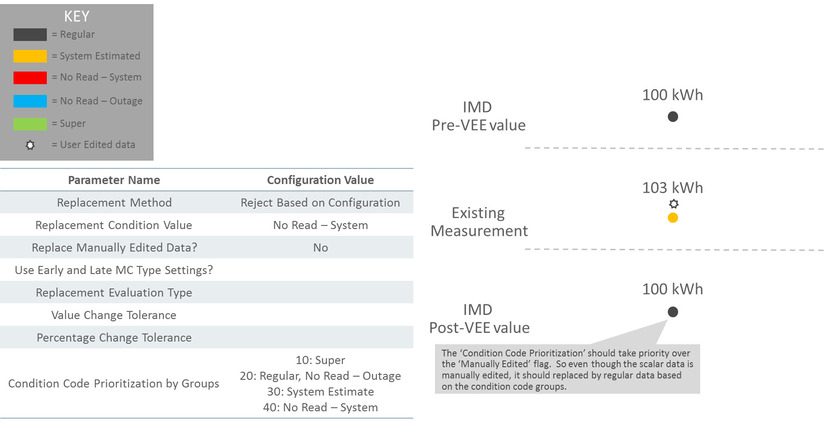Final Measurement Replacement
This validation rule allows you to define a variety of configuration options to decide if new scalar or interval data should replace existing measurements. The options include value change thresholds, percentage change thresholds, as well as condition code ranking. One common use for this rule is rejecting trivial measurement changes to prevent very small changes for a bill from being sent to a customer.
Additional detail on the logic of this rule can be found in the Detailed Description of the D2-VLMSRCOND Algorithm Type.
For help with the meaning of specific configuration fields, refer to the embedded help on the screen when adding or editing the rule.
Business Object
D2-FinalMeasurementValidation
Example Scenarios
Below are some example scenarios that can be achieved based on configuration of this rule.
Example 1: Replacement of measurements based solely on value difference
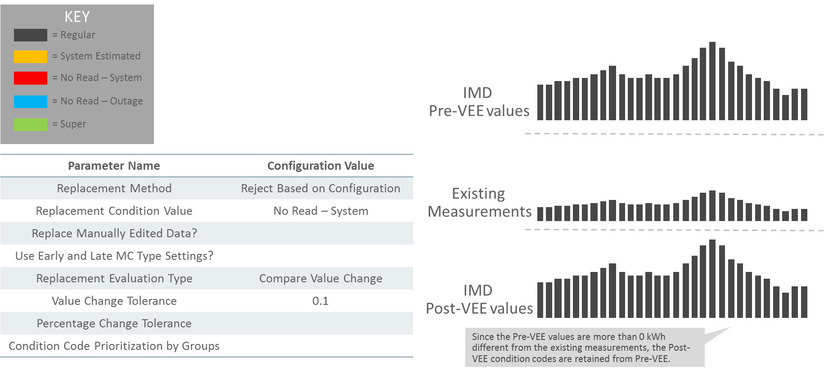
Example 2: Percentage change to replace measurement
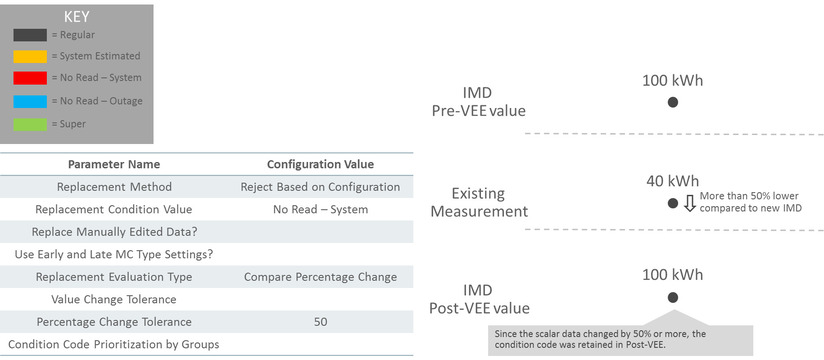
Example 3: Partial replacement of estimated data with regular data based on condition range prioritization
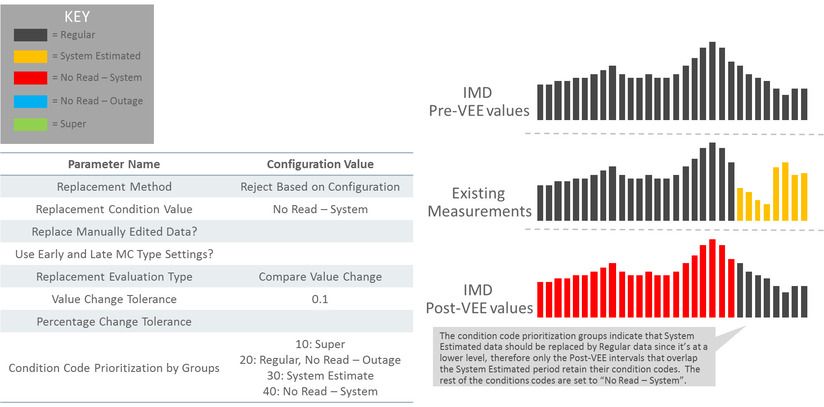
Example 4: Partial replacement of regular data with outage data based on condition range prioritization
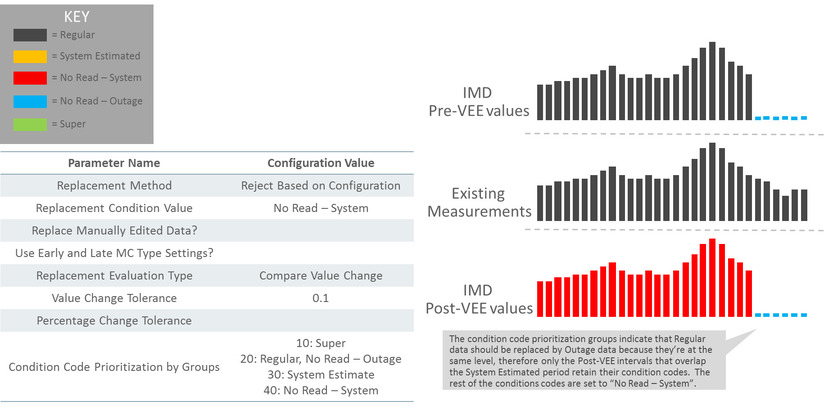
Example 5: Super not replaced by regular (retain a smoothed spike)
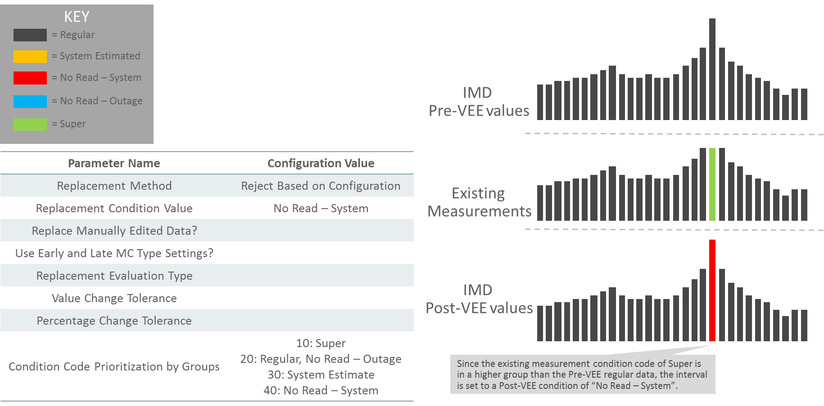
Example 6: Prevent replacement of manually edited data
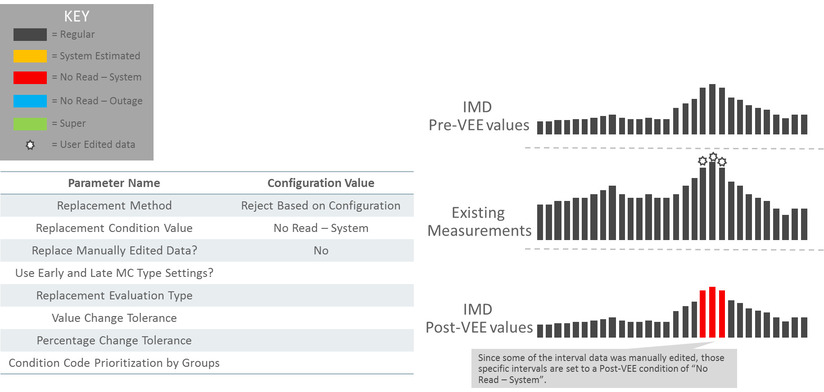
Example 7: Allow replacement of manually edited data if the condition group is lower than new data
